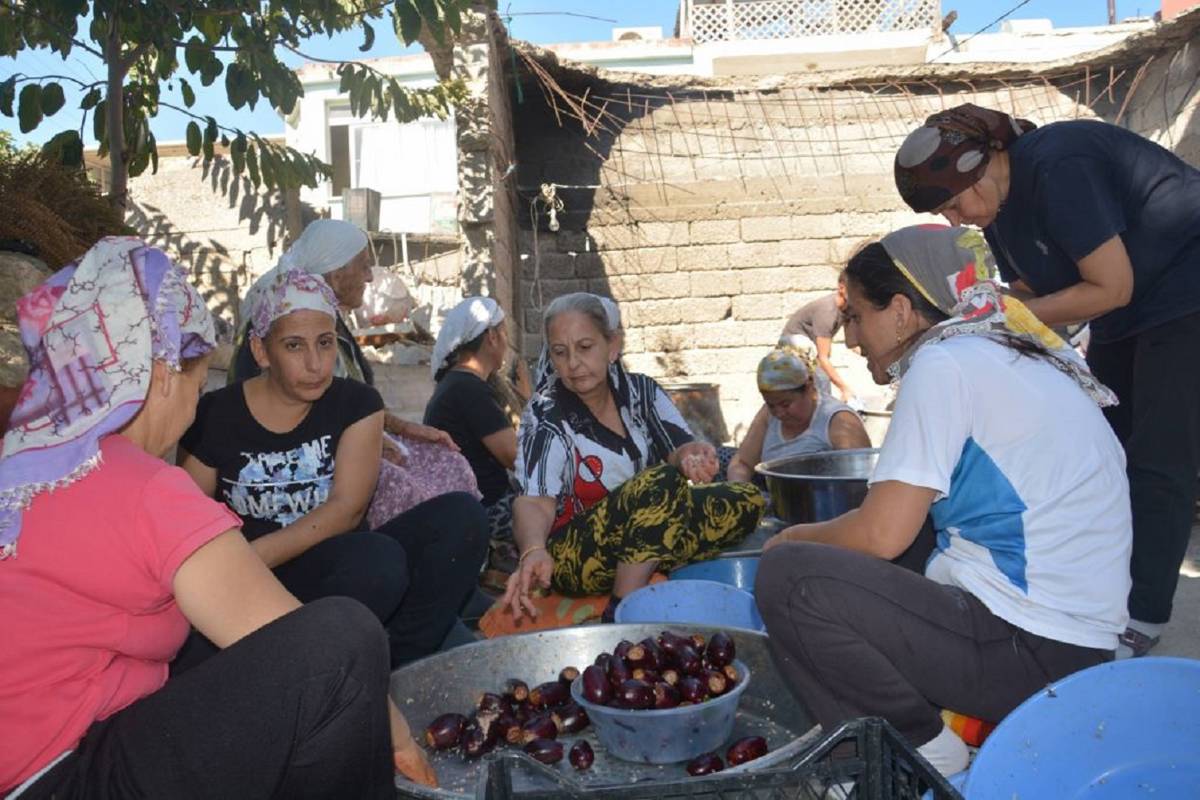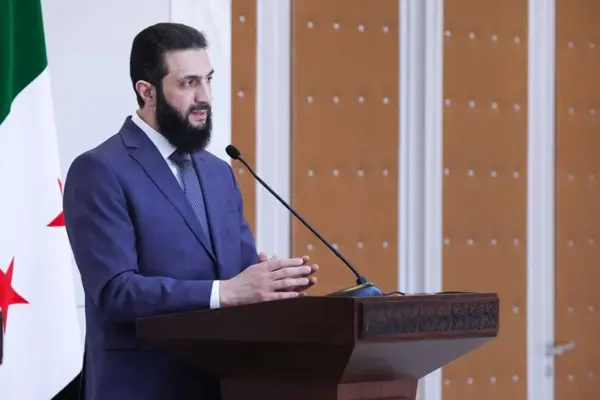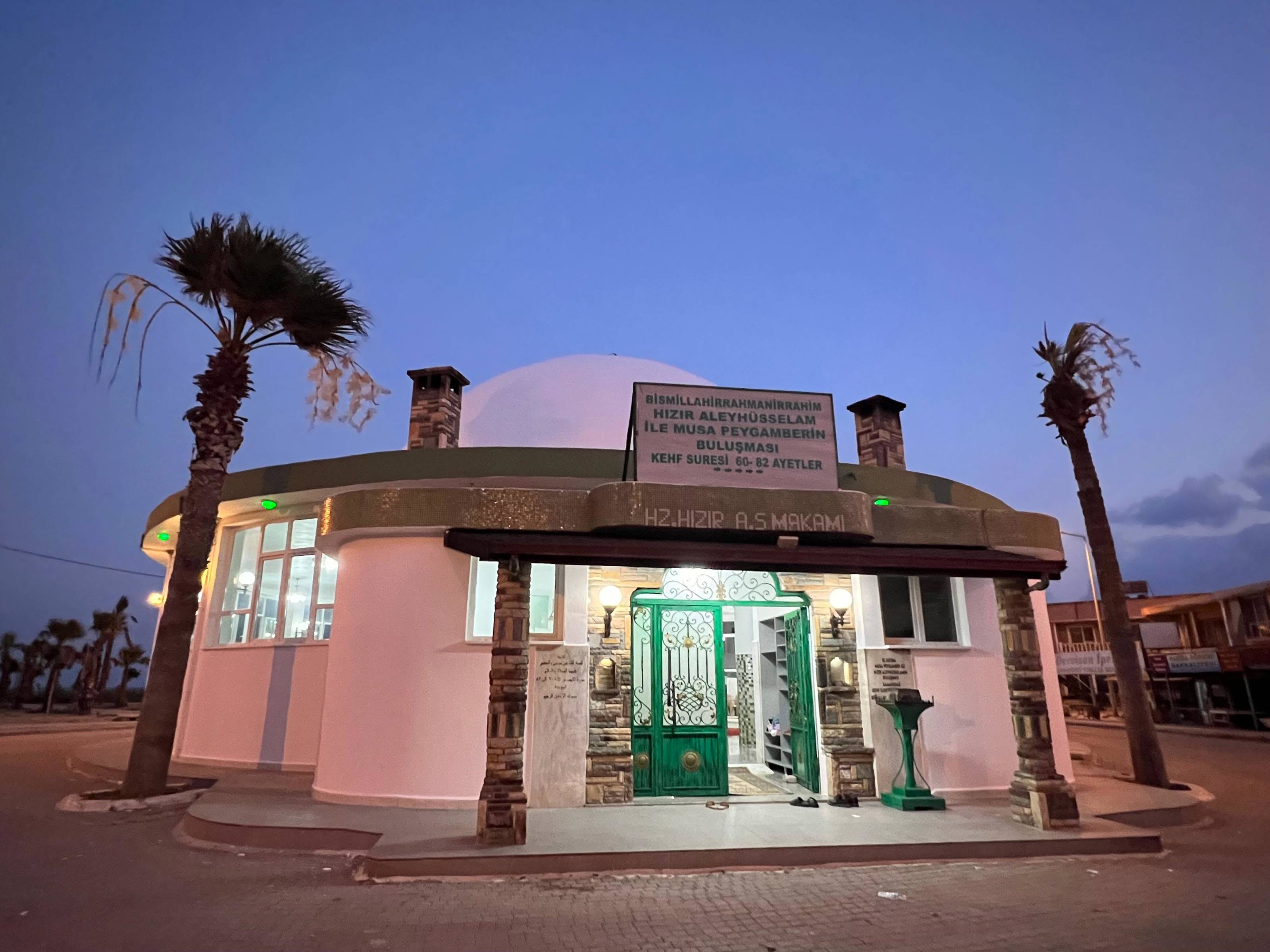It was still at dawn-around four in the morning. The gentle green light was beaming from Hızır Aleyhisselâm Makamı by the sea. The shrine is of great reverence among the Arab Alawites and others in Hatay as it is believed to be the place where the Prophet Moses met the mystic suprahuman figure, al-Khdir. As time went on, early risers began circumambulating the shrine, ushering the day with prayer. By the corner, Zühni Berrak, a philosophy teacher in yellow rubber boots, was impatiently waiting for the sacrificial cow’s arrival.
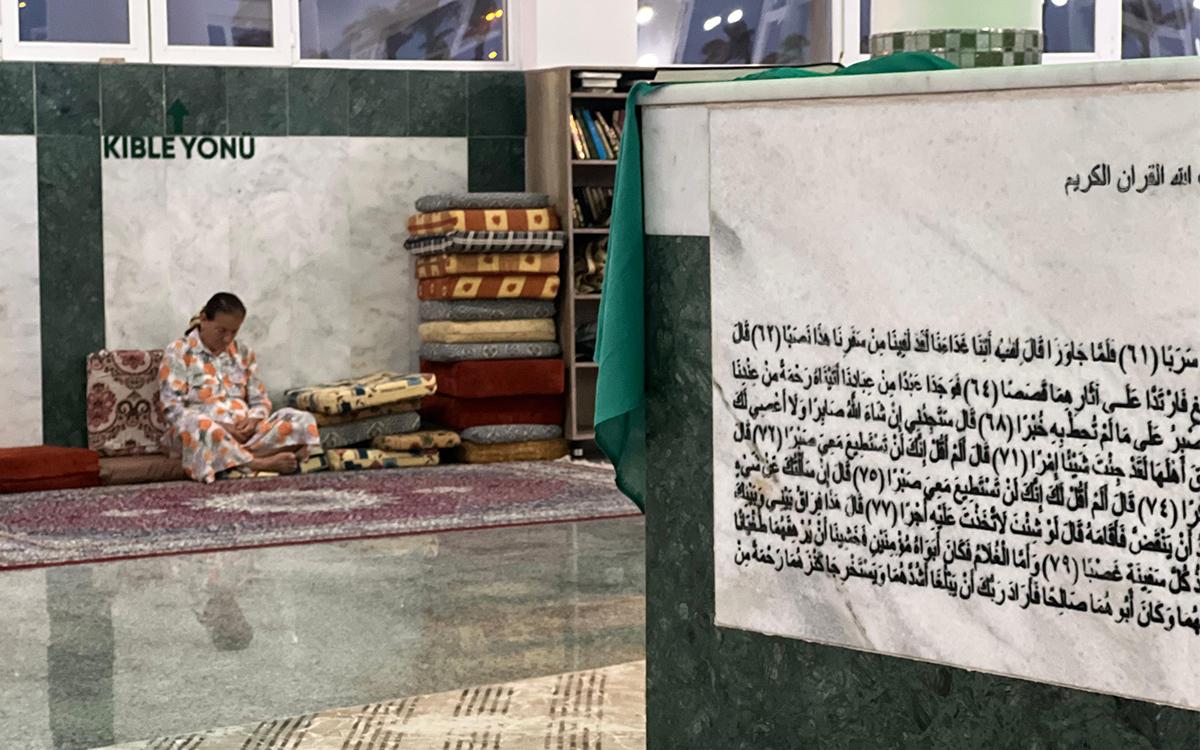
This scene is from Samandağ, Hatay on July 14, locally called Evvel Temmuz, the festive occasion that marks the wheat harvest. There are competing local debates on its origin. The popular belief links the celebration with the Mesopotamian god of fertility Tammuz, the symbol of blessing and plenty. In the recent past, it was also the day for people of all ages to splash up the path in the Orontes River to the sea. The oppression triggered by the 1980 coup affected the festivity significantly, thus returning to the celebration after two decades of silence added a new political layer to it.
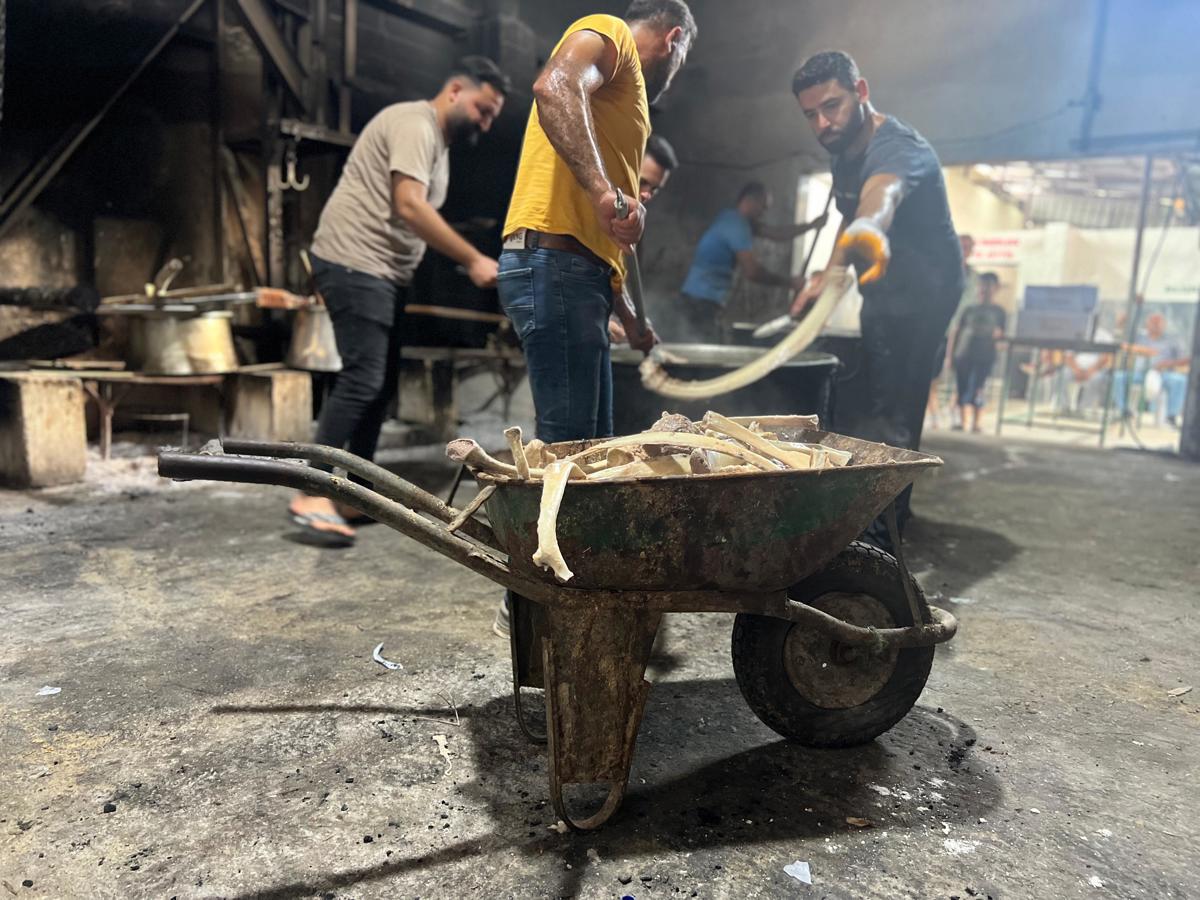
Today’s Evvel Temmuz has been celebrated in the form of a festival since 2001. The festival organizers not only aim to maintain the centuries-long tradition but also create space for entertainment, exhibition of the region’s unique linguistic and cultural heritages, and discussion about current affairs. This year, some local artists grace the stage in Arabic. Biologists and activists from the region passionately appeal to the urgent need to protect the Mileyha Wetland in the vicinity of the shrine. The post-earthquake reconstruction plans and identity politics were important points of discussion during the festival.
In parallel, the local community made merry by cooking and eating harisa, a savory porridge with simple ingredients – essentially wheat, water, and meat. Berrak is a royal volunteer with 24 years of experience. Another volunteer, Serdal Orman, came next to Berrak, joining the anxiety about the delay. A small group of volunteers have a grave duty to feed a couple of thousands by dusk. Cooking harisa is notoriously labor-intensive and time-consuming. It also requires precision in handling and scaling ingredients. Time is running out.
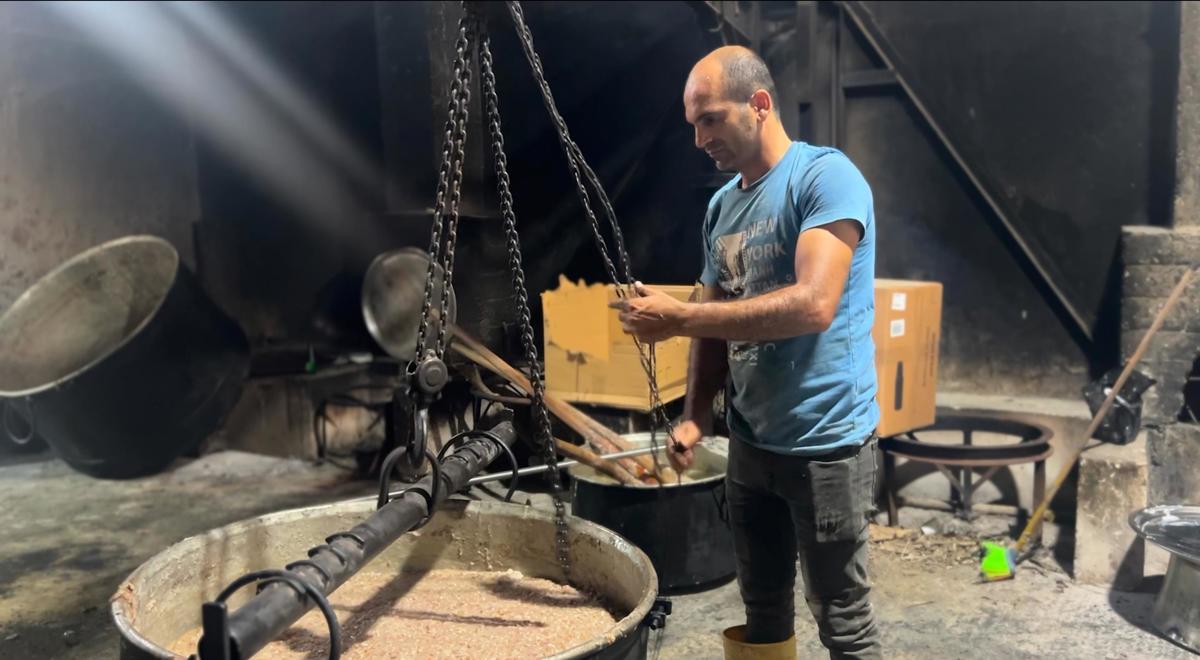
As soon as the cow arrived, volunteers gathered to kick off their communal duty. The animal should be sacrificed, its meat cleaned and soaked in water. While some were weighing meat, wheat, and water, others fired up the wood under the huge cauldrons. While harisa is a staple for numerous holidays and rites of passage for the Alawite, Armenian, and Christian communities in the region, the sheer amount of harisa during Evvel Temmuz is incomparable with other occasions.
When the ingredients became ready, bones were removed and the participants took turns, churning and beating the porridge to the viscous consistency with large wooden clubs. Its name is linked to this process, coming from an Arabic root ha-ra-sa, meaning to beat. One should not confuse it with the hot chili pepper paste from North Africa or a type of Egyptian and Levant sweet with the same name.
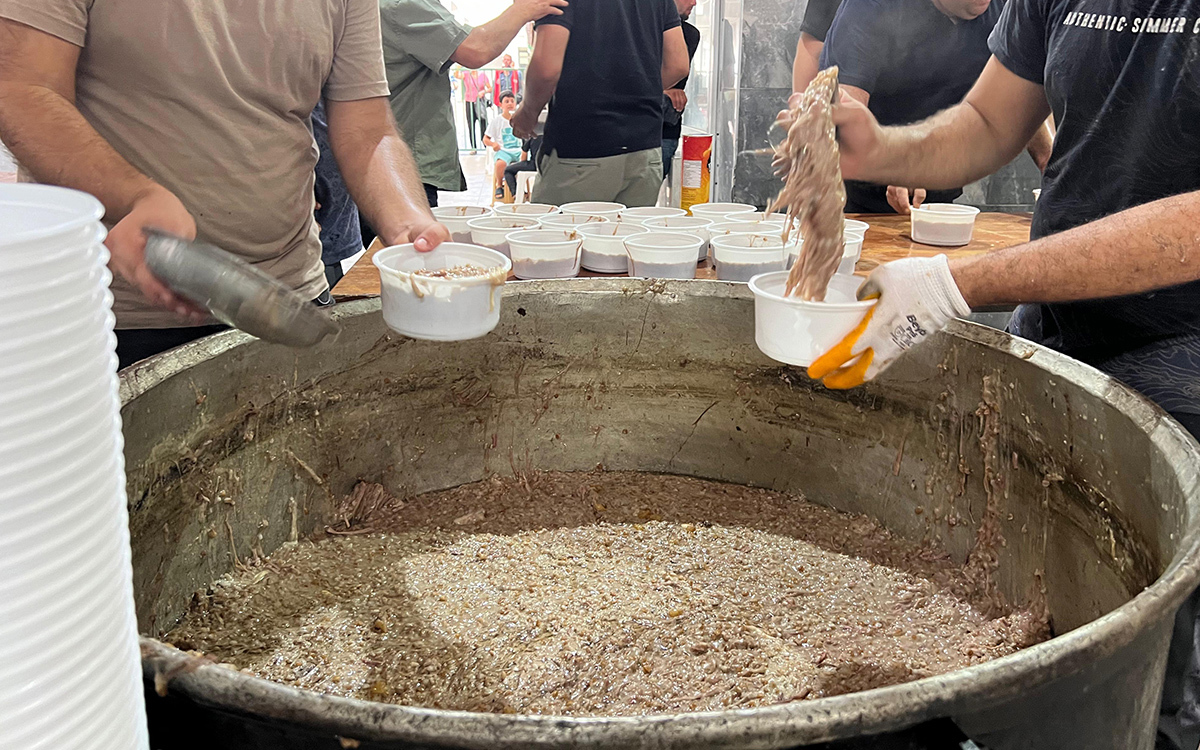
One of the volunteers in his 30s, Yusuf Su, a physical education teacher, noted that Evvel Temmuz used to be a more exciting occasion for him. “After the earthquake, the excitement has escaped me. I cannot enjoy myself.” On 6 February 2023, Hatay and the wider region of southern Turkey and north Syria fell victim to a devastating quake. From entertainment, discussion panels, and to the soup kitchen, the shadow of the harrowing experience and uncertainty for the future were inevitably present.
Against all the odds, Su continued that the tradition should continue, remarking “In the end, this is our culture. We should uphold it. The youth perhaps might not be as thrilled, but I believe we will continue this tradition forever. I really hope so.” (SHC/DT/VC/VK)






